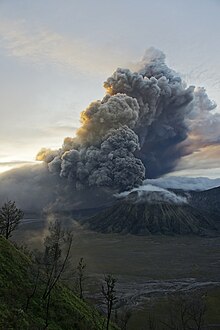Reflection # 6
It is Sunday and Eid al-Adha, the Festival of Sacrifice in
Islam. The day commemorates Abraham’s
willingness to follow the command of God to sacrifice his son. Sheep, cows and other animals are sacrificed
on this day. I’ve never fully understood
the Abraham story, and remember being saddened when I first heard the story as
a child. What kind of God would require
the sacrifice of children, or animals or any living creature? Today, I read the story of Abraham (Ibrahim) and
Isaac (Ishmael) metaphorically as a plea to well hear the word of the one God,
even when difficult to do so. But what
is the word of God? George W. Bush hears
God tell him to bomb Iraq, and the suicide bomber hears God tell him to bomb a
church. All I hear is the call to love
all sentient beings because we are all a reflection of the divine.
As I round the corner
on my morning run, a man emerges from a house with a knife in his hand. I guess what he will do when I see him turn
toward a group of men down an alley near a mosque. Running further down the road, I come across
sheep in a field surrounded by many people.
Some of the sheep have words written on them in red. I’m sure the sheep are scared. All beings seek life. I wonder what it is like for a sheep to watch
other sheep being killed. Once I watched
a friend fish, and saw the way the fish he caught squirmed and fought to stay
free, to retain life. I’m a vegetarian
these days, and perhaps I am too sensitive to killing other beings. (Yes, I know that carrots and lettuce
probably struggle for life too!)
Wikipedia states that more than 100 million animals are slaughtered in
two days during Eid al-Adha. This figure
may be too high. Eid al-Adha is my
impetus for broad reflection on our relationship with nature and animals.
Robert Bellah identifies five stages in the evolution of
religion. In the archaic stage,
religious cults emerge with gods, priests, worship and sacrifice. Here, the individual and society are merged
in a nature-divine cosmos, and sacrifice is performed to appease the gods as
part of the cosmic order (364-365). In the stage of modern religions, God is demythologized.
Individuals are not embedded in a cosmic
order, and ritual sacrifice is not a necessary dimension of the cosmic
scheme. Rather, individuals seek to
develop meaning in the world through the promotion of ethics and the enactment
of values (370-373).
But what ethics and values have we adopted? The climate crisis, the fact that we are in a
sixth great extinction period and the often poor treatment of animals evince
the ways that humans are ecologically disembedded. In an anthropocentric move, we have placed humans
in a privileged position over and against nature. Nature and animals are thus viewed as our property,
lacking intrinsic meaning and value of their own. We sacrifice animals for our own ends—in fights,
races, rituals and for food, sometimes without due care. Animals are raised for slaughter in crowded
and fetid conditions, and injected with antibiotics, steroids and hormones. Prudence is divorced from ethics
I understand that
many of the animals sacrificed during Eid al-Adha would be killed for food in
any event. And, I appreciate that a
portion of the meat is always given to the poor. Eid al-Adha comes at the end of the Hajj, a
sacred, powerful and prayerful journey of surrender to Allah. It is a day filled with devotion, connection
and sharing.







